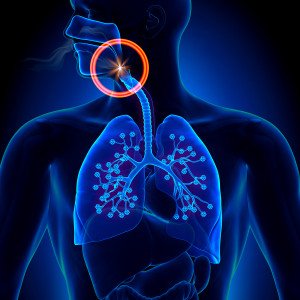What You Should Know Sleep Apnea
 While some individuals lose sleep due to their partner’s snoring habits, other individuals find it almost comical or funny. Although the person’s snoring is oftentimes a humorous topic for family members and personal friends, there is nothing comical about this, especially when that snoring is attributed to OSA or Obstructive Sleep Apnea. Community Dental Group has helped numerous individuals overcome their snoring issues with specialized dental appliances that have been designed to keep a person’s airway open and prevent this from happening.
While some individuals lose sleep due to their partner’s snoring habits, other individuals find it almost comical or funny. Although the person’s snoring is oftentimes a humorous topic for family members and personal friends, there is nothing comical about this, especially when that snoring is attributed to OSA or Obstructive Sleep Apnea. Community Dental Group has helped numerous individuals overcome their snoring issues with specialized dental appliances that have been designed to keep a person’s airway open and prevent this from happening.
Two Primary Types of Sleep Apnea
If left untreated, sleep apnea can cause repeated cessations in your breathing while you sleep and this could be happening hundreds of times in a single night. Basically what this means is that your brain, along with the rest of your body is not going to get enough oxygen. There are two primary types of sleep apnea to be aware of:
- Central Sleep Apnea (CSA) – with CSA, there is an instability in your respiratory or breathing control center of the brain. Unlike Obstructive Sleep Apnea (see next), the airway is not blocked when suffering with CSA. However, the snoring results from the brain’s failure to signal the respiratory center and tell your muscles to breathe.
- Obstructive Sleep Apnea (OSA) – this type of sleeping disorder is caused when the airway gets blocked during sleep. This usually results when the soft tissues to the rear of your throat collapse while you are sleeping. Additionally, OSA is the more common sleep apnea of the two disorders.
Health Issues That May Be Related To OSA
You can laugh at your family member’s or friend’s snoring all you want. Just be aware that a number of recent research studies have revealed that there are 7 health issues that are attributed or related to Obstructive Sleep Apnea. This includes:
- Acid reflux
- Adult asthma
- Heart disease
- High blood pressure
- Type II Diabetes
- Vehicular accidents
- Weight gain
Furthermore, the causes of sleep apnea include the anatomy of the person’s jaw, children’s tonsils, and obesity (overweight adults).
How To Know If You Are At Risk
Regardless of age you could be at risk of developing sleep apnea or are already suffering with it. Even children can succumb to sleeping disorders. The most common risk factors for CSA and OSA include:
- being 40 years of age and older
- being male (but not exclusively as women develop this disorder as well)
- being obese or overweight
- having a large tongue, larger tonsils, or a smaller jaw structure
- having GERD or gastroesophageal reflux disease
- having larger than a 17-inch neck if you’re male and a 16-inch neck if you’re female
- having nasal obstructions caused by allergies, a deviated septum, or sinus issues
- having the sleeping disorder in your family lineage
If you, your spouse, or other family member has been diagnosed with Central or Obstructive Sleep Apnea, Community Dental Group can help so that you can get a good night’s. This is a very serious matter that you cannot afford to neglect so please contact us today and schedule an appointment for an exam and evaluation of your condition.